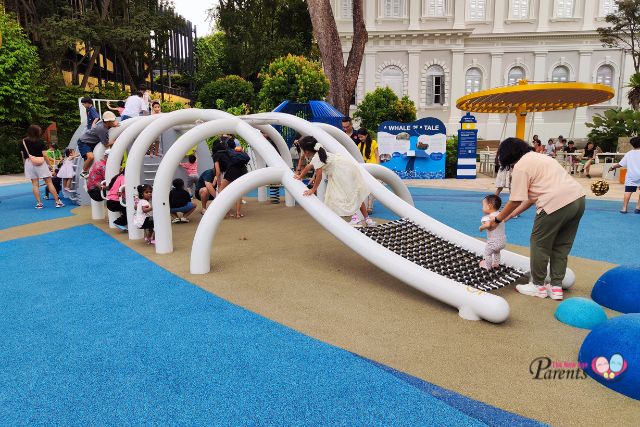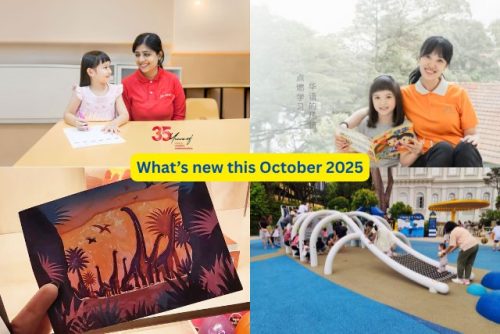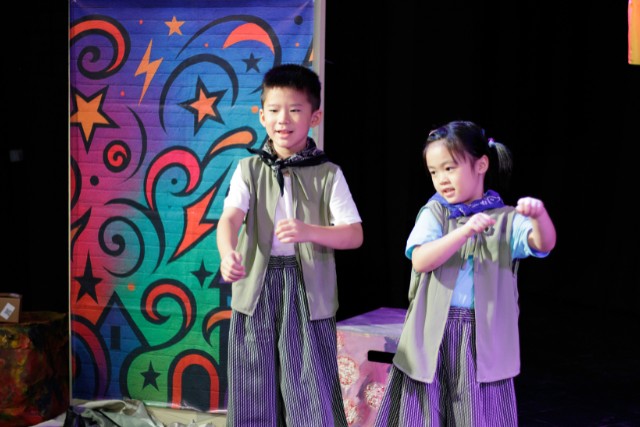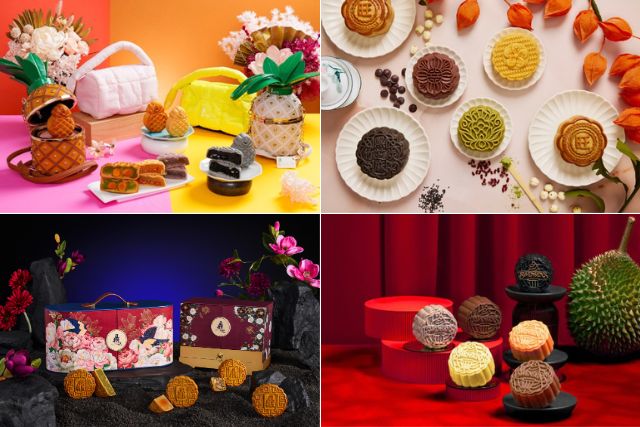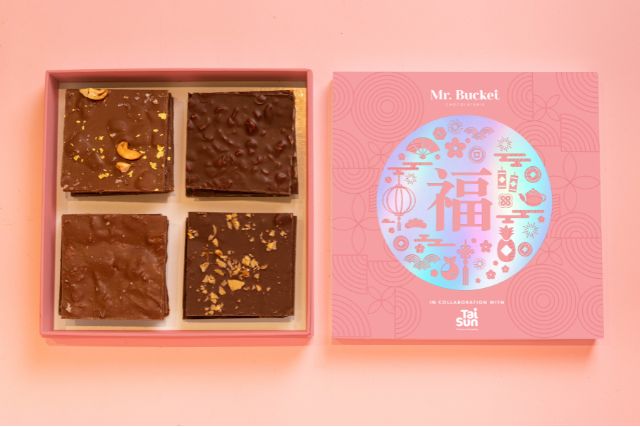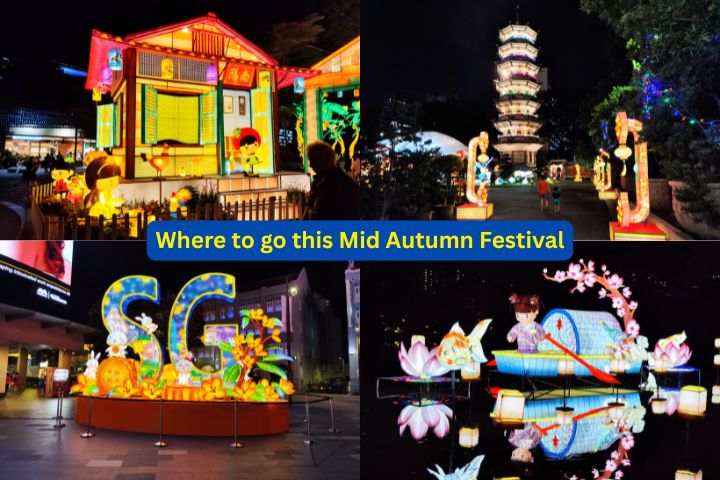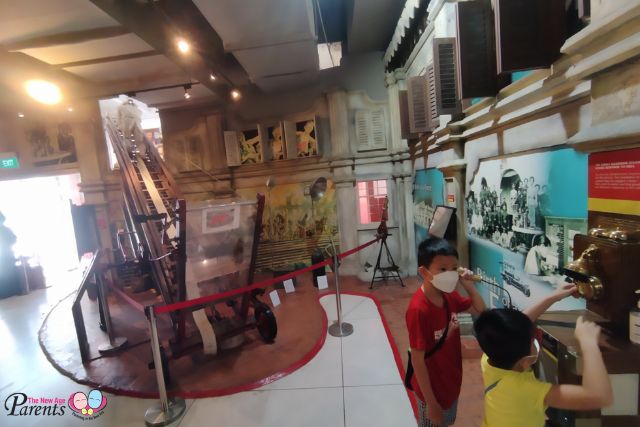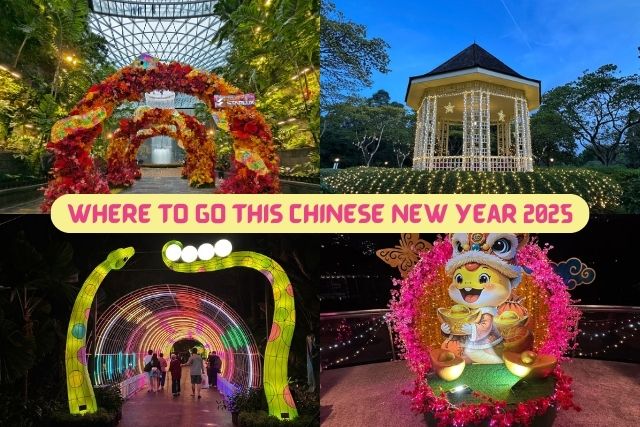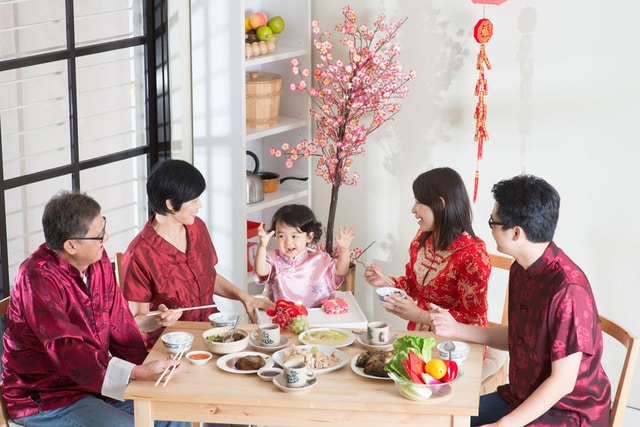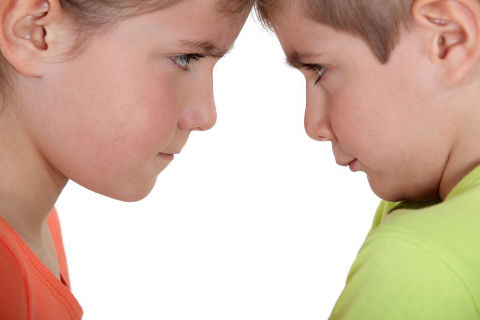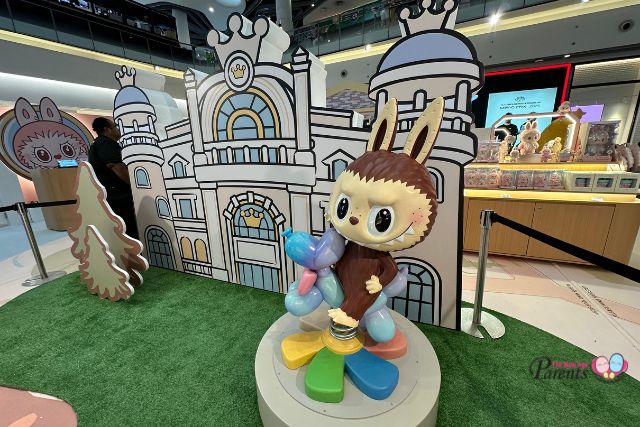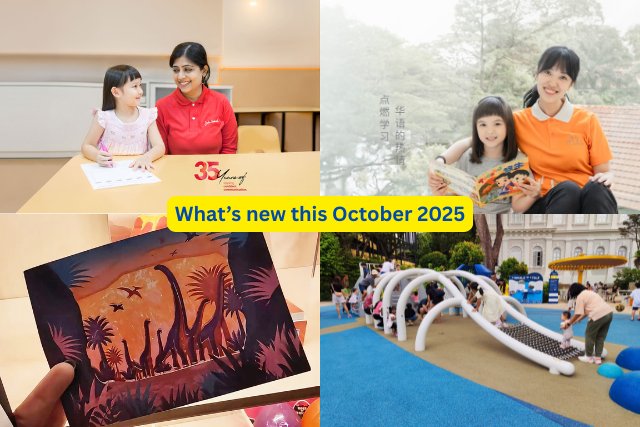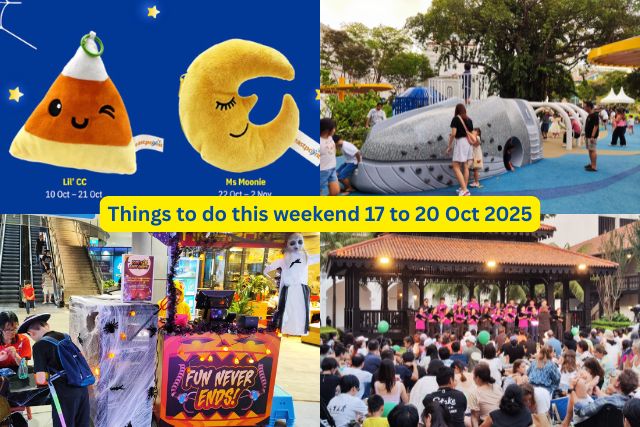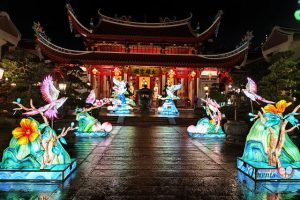In the vibrant mosaic of Singapore’s cultural landscape, Chinese festivals stand as vibrant threads weaving tales of ancient myths and traditions, resonating with a kaleidoscope of colours and diversity. Rooted in the rich tapestry of the Chinese calendar, these festivals not only mark the passage of time but also serve as poignant reminders of the significance of family and community.
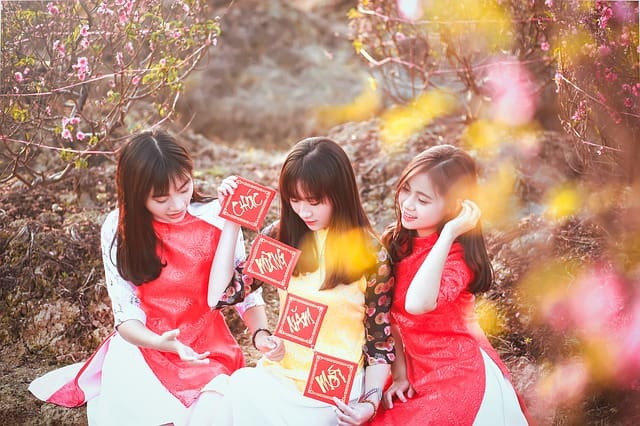
Chinese festivals, deeply intertwined with old myths and legends, often evolve with time, taking on new meanings and cultural nuances. Take, for instance, the Mid-Autumn Festival, originally a harvest celebration that has gracefully embraced the mythological allure of Chang-E, the captivating lady on the moon. These festivals, regardless of their origins, share a common thread in reinforcing the concept of family as the bedrock of society.
In this post, we unravel the tapestry of these Chinese festivals, exploring the customs, traditions, and unique Singaporean expressions that make each celebration a captivating chapter in the nation’s cultural narrative.
1. Chinese New Year (Spring Festival 春节)
📅 29 Jan to 12 Feb 2025 (1st to 15th day of the 1st lunar month)
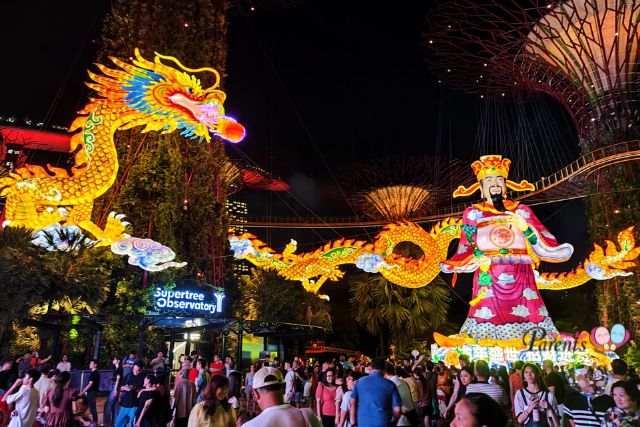
Origins: Rooted in ancient agrarian traditions, Chinese New Year, or Spring Festival, marks the end of winter and the beginning of spring. It is associated with the lunar calendar and welcomes the new agricultural year.
Celebrations: Characterized by vibrant parades, lion and dragon dances, family reunions, and the iconic red envelopes (hongbao) exchanged for good luck.
Observations in Singapore: The festive atmosphere transforms the streets of Chinatown, with colourful decorations, lively performances, and a grand display of fireworks.
Celebrate the Spring Festival with delectable treats such as pineapple tarts, symbolizing wealth and prosperity, and bak kwa, a sweet and savory barbecued meat delight.
➡️ Related Read: Where to go During Chinese New Year
*******************************
2. Qing Ming Festival (Tomb Sweeping Day 清明节)
📅 4 Apr 2025
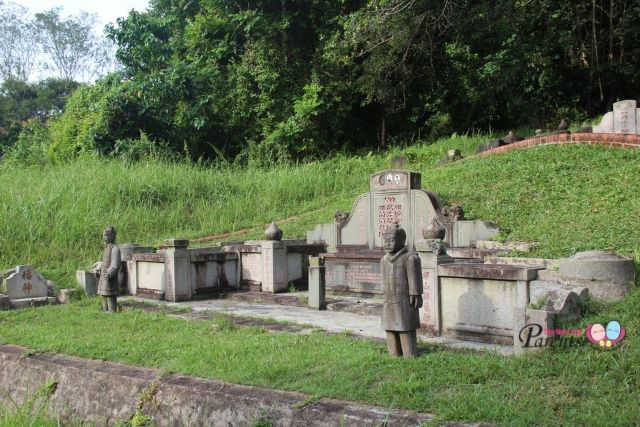
Origins: Originating from Confucianism, Qing Ming is a time to honor ancestors by tending to their graves and making offerings. It also has roots in ancient agricultural practices.
Celebrations: Families visit cemeteries, clean and decorate graves, and burn incense and offerings. Some also participate in tree planting activities.
Observations in Singapore: Various cemeteries, including Choa Chu Kang Cemetery and Bukit Brown Cemetery, see an influx of families during Qing Ming, engaging in solemn yet respectful rituals.
During Qing Ming, families honor ancestors with offerings at the gravesite. Traditional foods like red bean soup and sticky rice cakes are commonly shared.
*******************************
3. Dragon Boat Festival (Duan Wu Jie 端午节)
📅 31 May 2025 (5th day of the 5th lunar month)
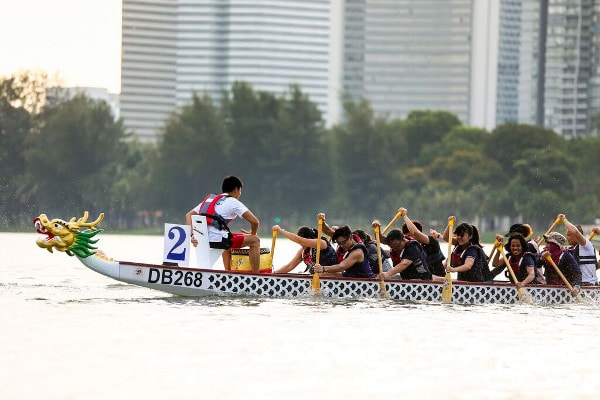 Source: Singapore Sports Hub
Source: Singapore Sports Hub
Origins: Commemorates the life and death of the ancient poet Qu Yuan. Dragon boat races and the consumption of zongzi (sticky rice dumplings) are central to this festival.
Celebrations: The highlight is the intense dragon boat races, accompanied by the rhythmic drumming. Families also gather to enjoy and share zongzi.
Observations in Singapore: The Marina Bay area hosts vibrant dragon boat races, attracting both participants and spectators. Zongzi fairs offer a variety of flavours.
As the Dragon Boat Festival unfolds, savor the iconic rice dumplings, zongzi, wrapped in bamboo leaves and filled with a variety of ingredients like pork, mushrooms, and chestnuts.
*******************************
4. Qi Qiao Jie (Cowherd and Weaving Maid Festival 乞巧节)
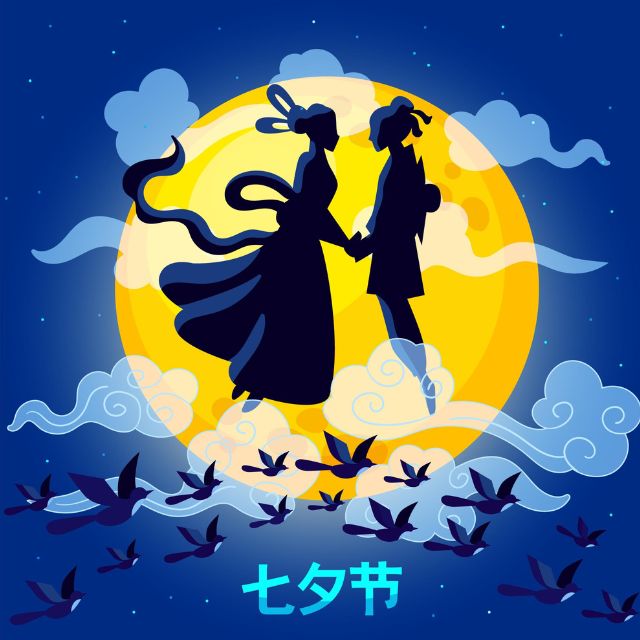 Image by freepik
Image by freepik
📅 29 Aug 2025 (7th day of the 7th lunar month)
Origins: Also known as the Double Seventh Festival, it celebrates the love story between the Cowherd and the Weaving Maid, two star-crossed lovers in Chinese mythology.
Celebrations: People make colourful paper crafts, offer fruits, and make wishes for love. Traditional performances and displays are common.
Observations in Singapore: Cultural centres and community spaces often organize events, showcasing traditional displays and performances.
*******************************
5. Hungry Ghost Festival (Zhong Yuan Jie 中元节)
📅 6 Sep 2025 (15th day of the 7th lunar month)
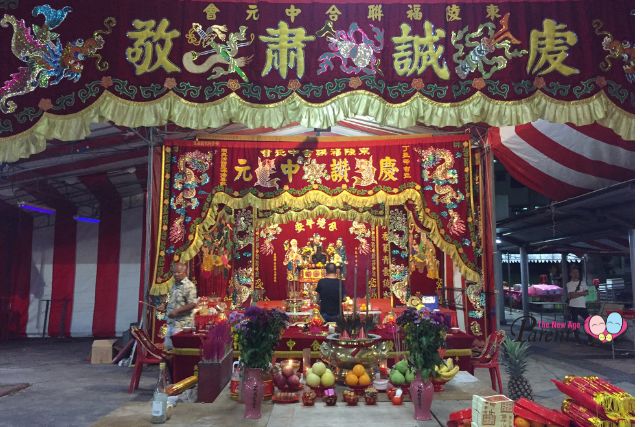
Origins: A month-long festival dedicated to appeasing and honouring the spirits of the deceased. It combines Taoist and Buddhist beliefs.
Celebrations: Elaborate offerings, including the burning of paper money and food. Chinese operas are performed to entertain the spirits.
Observations in Singapore: Streets come alive with performances, auctions, and various cultural events to honour and entertain the spirits.
➡️ Related Read: Hungry Ghost Festival Do’s and Don’ts
*******************************
6. Mid-Autumn Festival (Zhong Qiu Jie 中秋节)
📅 6 Oct 2025 (15th day of the 8th lunar month)

Origins: Initially a harvest festival, it gained mythological significance with the legend of Chang-E, a lady in the moon. Mooncakes and lanterns are integral to the celebrations.
Celebrations: Families gather to enjoy mooncakes, carry lanterns, and appreciate the full moon. Cultural performances and mooncake fairs are prevalent.
Observations in Singapore: Gardens by the Bay and Chinatown become illuminated during this festival, hosting lantern processions and cultural events.
➡️ Related Read: Where to Celebrate Mid Autumn Festival
*******************************
7. Double Ninth Festival (Chong Yang Jie 重阳节)
📅 20 Oct 2025 (9th day of the 9th lunar month)
Origins: Traditionally associated with climbing heights to avoid misfortune, this festival is also a time to pay respects to elders and pray for longevity.
Celebrations: Families climb hills, wear zhuyu (a type of plant), and partake in chrysanthemum-related activities. It’s also common to enjoy chrysanthemum wine.
Observations in Singapore: Parks and hills become popular destinations for families during this festival. Some communities organize special events and activities.
*******************************
8. Winter Solstice Festival (Dong Zhi 冬至)
📅 21 Dec 2025
Origins: Linked to the yin and yang philosophy, the Winter Solstice Festival marks the longest night of the year and the return of longer days.
Celebrations: Families gather for a festive meal, often featuring tangyuan (sweet glutinous rice balls). It is a time for unity and reflection.
Observations in Singapore: The festival is observed with family dinners, where tangyuan symbolize reunion and the warmth of familial bonds.
In this guide, we embark on a journey through the essence of these Chinese festivals, exploring their roots, observing their traditions, and appreciating the cultural significance they contribute to the vibrant mosaic of Singapore’s cultural identity.
* * * * *
Looking to reach over 100,000 parents in Singapore? Let us amplify your message! Drop your contact details here, and we’ll reach out to you.
Discover exciting family-friendly events and places to explore! Join our Telegram channel for curated parenting recommendations.























